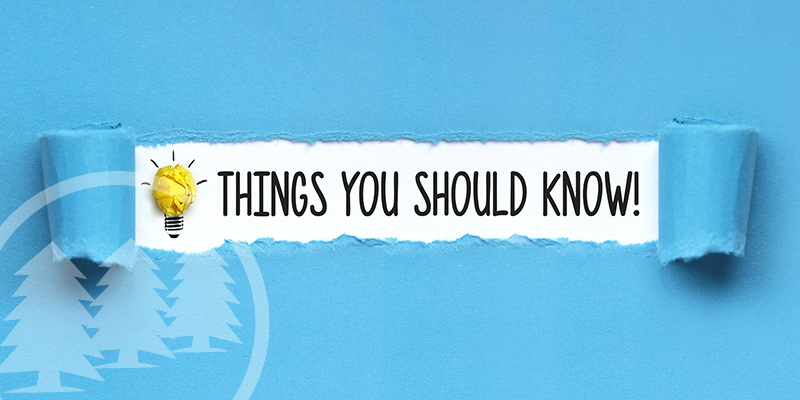For many homeowners associations, collecting dues can be a tough task, especially when there are too many delinquent residents. Thankfully, you can make HOA collections a breeze by following a simple process and considering all your options.
The Importance of an HOA Collections Policy
 An HOA relies on dues as its primary source of revenue. Without homeowner dues, an association would fail to fulfill its duty to maintain the community.
An HOA relies on dues as its primary source of revenue. Without homeowner dues, an association would fail to fulfill its duty to maintain the community.
Vendor services, repairs, and maintenance do not come cheap. So when an HOA fails to collect dues, it is basically painting itself into a corner. This eventually leads to a diminished curb appeal and lower property values.
For those who are unaware, HOA dues are payments homeowners make every year to the association. Every homeowner living within an HOA community is required to pay these dues, as stipulated in the governing documents. The HOA board computes the annual budget each year and splits the expenses among all homeowners in the community. Some associations collect on a monthly basis, while others do it in a yearly lump sum.
Because HOA dues are the lifeblood of any association, every HOA must have a collection policy in place. Setting a standard policy for collections for the year can save a great deal of time and trouble. In fact, some states even require it. By clearly defining your HOA collection process, you can have a set of guidelines to refer to in case complications arise.
Understanding the HOA Collection Process
The HOA collections process does not have to be an uphill battle. In fact, most associations have the process laid out for them within their governing documents. Others can turn to state laws for insight. While not all HOAs are created equal, the general process begins with sending out reminders via text message, monthly newsletters, social media, or through other means.
Once the time to collect dues comes around, homeowners can send in their payments via mail or some other method. This is the more traditional mode of collection. Other HOAs send out representatives to collect the dues door-to-door. In recent times, more and more associations are adopting automation as a way to collect dues.
When defining your HOA collections policy or process, make sure to lay down the specifics. Will you charge late fees? How will they be imposed? Can homeowners dispute the delinquency of their dues? What is the process for disputes? A clear policy can be the only thing that keeps your HOA from descending into utter chaos.
The Pros and Cons of Automated Collection
Electronic collection or payment systems are becoming increasingly popular in the HOA scene. This is largely due to the fact that the world is evolving every day, and adapting to technology is simply a normal reaction to the changes. But, should your association even consider automating your collection process? Take a look at the pros and cons of the electronic or automated collection below before making your decision:
The Pros of Automated Collection:
- More convenient
- Ease of use, especially among younger and more tech-savvy crowds
- Real-time monitoring and tracking for the HOA board
- Built-in alert system for the deadline of payment
- More efficient
The Cons of Automated Collection:
- Relies on a stable connection (LAN or internet)
- Prone to hacking without proper cybersecurity precautions
- Might not be easy for elderly residents or those who are not tech-savvy
HOA Collection Methods for Delinquent HOA Payments
 Every homeowner should pay their dues religiously. Unfortunately, the reality is far from it. Many homeowners fail to pay their dues on time or knowingly default on their payments.
Every homeowner should pay their dues religiously. Unfortunately, the reality is far from it. Many homeowners fail to pay their dues on time or knowingly default on their payments.
Delinquent accounts can be detrimental to an association. After all, for most, hoa dues are their only source of income.
A good way to encourage timely dues payment is to acknowledge and thank homeowners who never miss a deadline. It might not seem like much to some, but appreciation can go a long way. Should you face delinquent payments, though, here are some methods you can use to collect late HOA dues:
1. Demand Notice
This is a typical first step that most HOAs take in case of delinquent payments. Sometimes, homeowners do not even know they have missed the deadline. Send out a demand notice that includes all the necessary details. This includes the amount due, any late or interest fees, how many days late they are on their payments, and other important information.
2. Payment Plan
If your association allows it (or if your state requires it), you can set up a payment plan for delinquent homeowners. Check your governing documents for any provisions concerning payment plans. If you do not have one already, consider talking to your HOA manager about setting one up. After all, incremental payments are better than no payment.
3. Revoke Rights and Privileges
Some residents simply refuse to pay for their dues, even after receiving a demand notice or being offered a payment plan. For these cases, it may work to suspend their rights and privileges. This includes not being allowed to vote on HOA matters and losing access to amenities like the community pool or fitness center.
4. Seek Payment from Renters
If a delinquent homeowner happens to be renting their property out, the HOA can go after the renter instead. It is important to note, though, that this route is only possible provided the tenant signed such an agreement with the association. So before you barge in seeking payment, make sure to review their contract first.
5. HOA Collection Agency
Collecting delinquent dues can be a headache, which is why a lot of HOAs turn to professional services for help. An HOA collections agency can do all the work for you. Of course, their services come with a price. More often than not, it involves taking a chunk out of the collected amount for themselves.
6. File a Lawsuit
Depending on your state laws, you may be allowed to sue the delinquent homeowner for unpaid dues. Your association can settle the debt by taking the amount from the said homeowner’s wages or bank account. You can even take them to a small claims court.
7. Place an HOA Lien or Foreclosure
Usually, an HOA can place a homeowner association lien on the delinquent resident’s property. Liens do not cause a lot of trouble for homeowners at first. However, liens will become an issue when they attempt to sell their home or refinance their mortgage. Associations can even foreclose on the lien, depending on what state laws and the HOA governing documents permit.
Your HOA Collections Process Matters
HOA collections are a big chunk of HOA management. Dues keep the association alive and well-funded. While an HOA is a non-profit organization, it still requires revenue to continue operations and keep property values up. Therefore, setting a clear and standard collection policy remains imperative.
If your HOA is having difficulty navigating HOA collections, consider hiring an HOA management company with collection services. In that case, give us a call.
Up Next:
- Should The HOA Continue To Collect Assessments During Coronavirus Crisis?
- HOA Foreclosures In South Carolina: Beware Homeowners Who Fail to Pay Their HOA Dues
- What Happens If You Don’t Pay HOA Fees?






